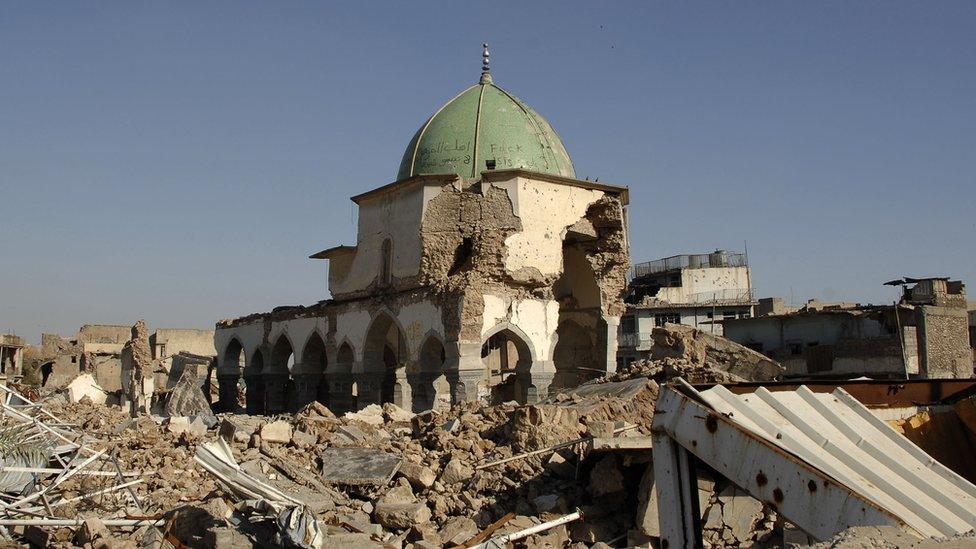Three men on trial over Barcelona and Cambrils jihadist attacks
- Published
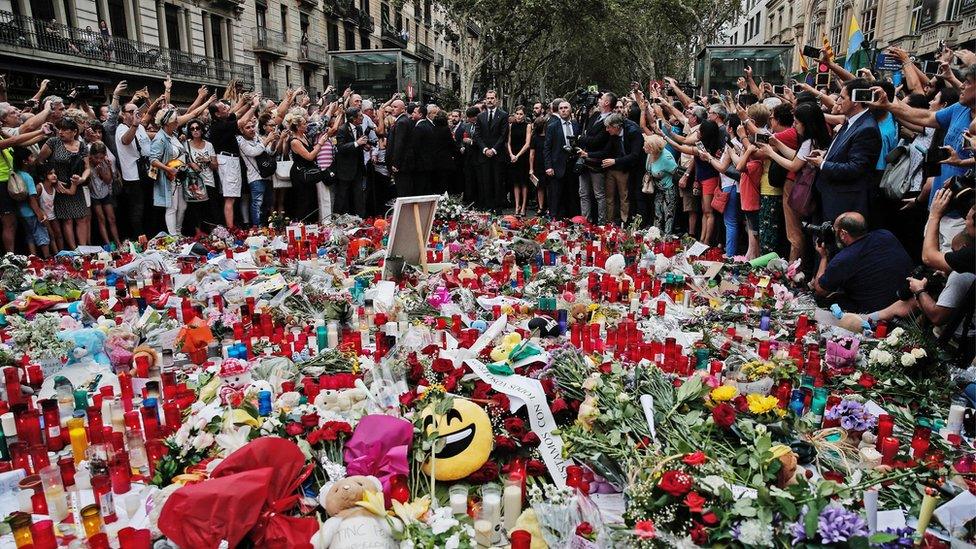
The victims of the attacks included people from Australia, Germany, Italy and the US
Three men have gone on trial in Spain over two deadly jihadist attacks that killed 16 people and injured 140 in and around Barcelona in 2017.
The trio are accused of helping the perpetrators, who were all shot dead by police, carry out the attacks.
One of the perpetrators rammed a van into pedestrians in Barcelona's Las Ramblas tourist area, before a twin attack was launched in a nearby town.
The Islamic State group (IS) said it had carried out the attacks.
The three defendants appeared, under heavy security, at the high court near Madrid on Tuesday.
Mohamed Houli Chemlal, a 23-year-old Spanish national, and 31-year-old Moroccan national Driss Oukabir are accused of belonging to the jihadist cell that orchestrated the attacks.
Another Moroccan national, Ben Iazza, 27, is accused of collaborating with them.
What do we know about the trial?
All three defendants were seated in a thick glass box, wearing masks, as the trial got under way, an AFP correspondent at the scene reports.
The court was shown video footage of cell members - including the van driver Younes Abouyaaqoub - joking around with explosive belts prior to the 2017 attack, the report says.
Mr Chemlal and Mr Oukabir face charges of belonging to a terrorist organisation, manufacturing and storing explosives, and attempting to cause widespread destruction. Prosecutors are seeking jail terms of 41 and 36 years respectively.
The charges relate to an accidental explosion at a house in the small town of Alcanar, which is 200km (124 miles) south of Barcelona, that happened the day before the attacks began.
Explosives and gas canisters were stored in the building, and Mr Chemlal later told investigators the cell had been planning attacks "on an even greater scale".
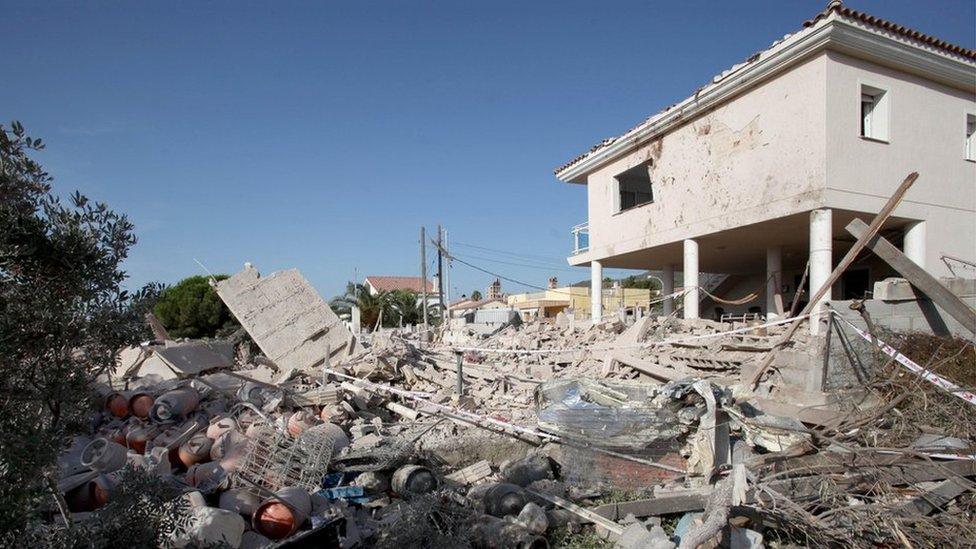
Butane and propane gas canisters were found at the scene of an explosion in Alcanar
The material they were planning to use was destroyed in the blast, police say. The explosion also killed the group's leader, a 44-year-old imam.
Mr Oukabir is also accused of renting the van that was used in the Barcelona attack, but his lawyer has said he will seek an acquittal.
"The fact that he hired a van doesn't mean he knew it was going to be used to carry out the attack," Luis Alvarez Collado told AFP news agency last week.
Meanwhile, Ben Iazza is accused of collaborating with the jihadist cell and lending them his van and identification documents. Prosecutors are seeking an eight-year sentence for the Moroccan national.
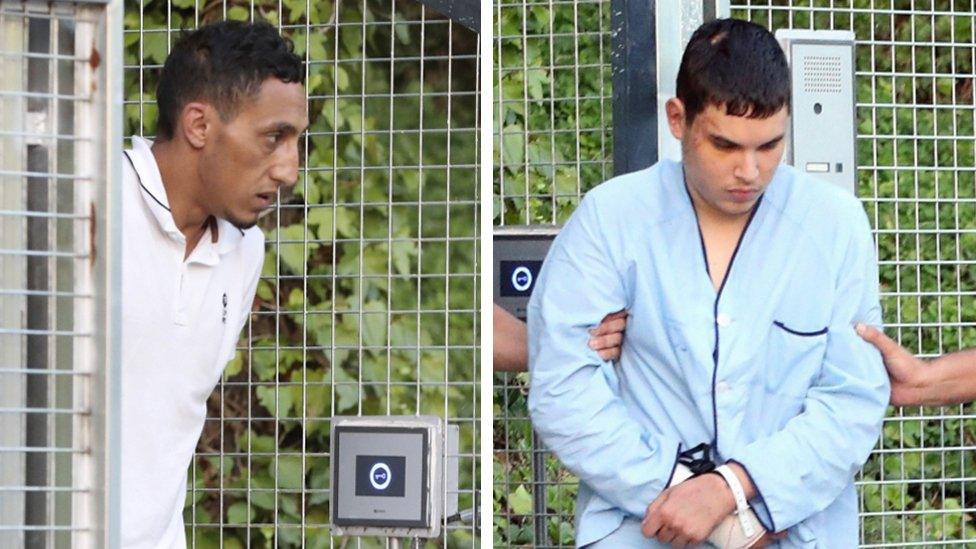
Driss Oukabir (left) and Mohamed Houli Chemlal (right), pictured after their arrest in 2017, are accused of belonging to the jihadist cell behind the attacks
But they have not charged any of the suspects with direct involvement in the attacks, prompting anger from victim support groups. A lawyer for the victims, Antonio Guerrero, told AFP as he went into court that all three should be in the dock for "terrorist murder".
The trial is expected to last until 16 December.
What happened in 2017?
On 17 August 2017, a rented white van was driven down Barcelona's busy Las Ramblas avenue at high speed. It careered into pedestrians along the packed street which sits at the heart of the city's tourist area.
Fourteen people were killed and more than 100 were injured. The victims included people from Australia, Germany, Italy, Portugal and the US.


After driving the van, 22-year-old Abouyaaqoub, then abandoned the vehicle and fled the scene on foot. He later hijacked a car and killed the driver.
The following day, five members of the jihadist cell drove to Cambrils which is 100km (62 miles) down the coast from Barcelona.
The launched a knife attack on the promenade and one woman was killed. All five men were shot dead by police.
Abouyaaqoub was also killed by police on 21 August after spending several days on the run.
- Published27 August 2017
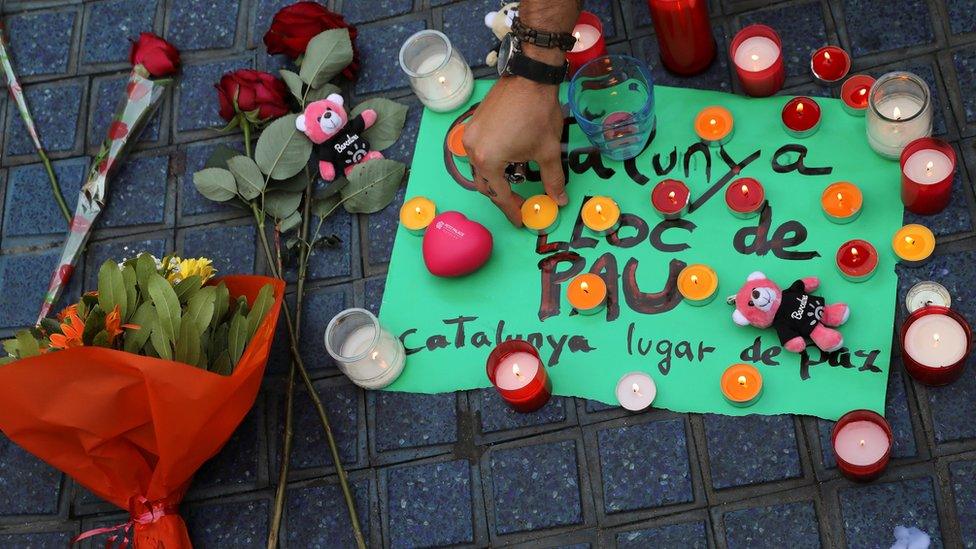
- Published30 August 2017
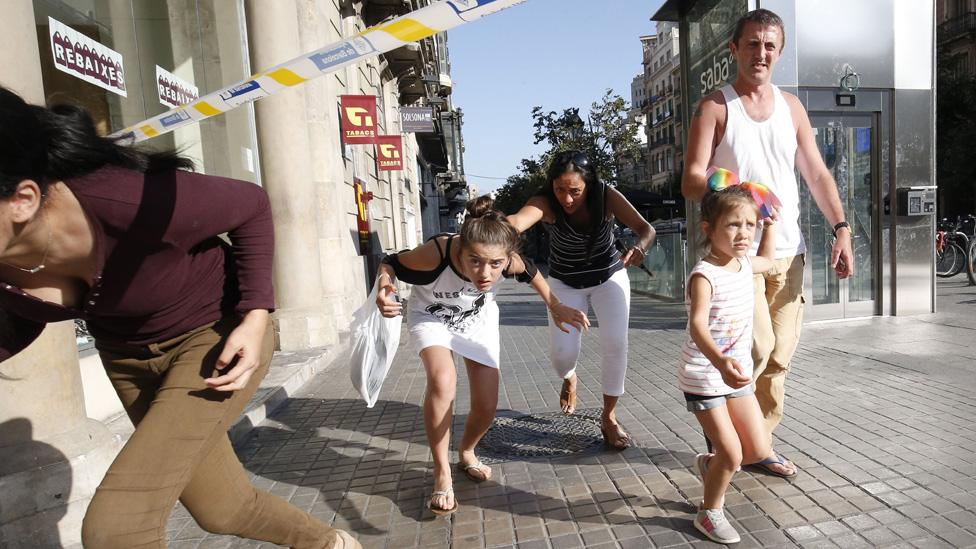
- Published23 March 2019
